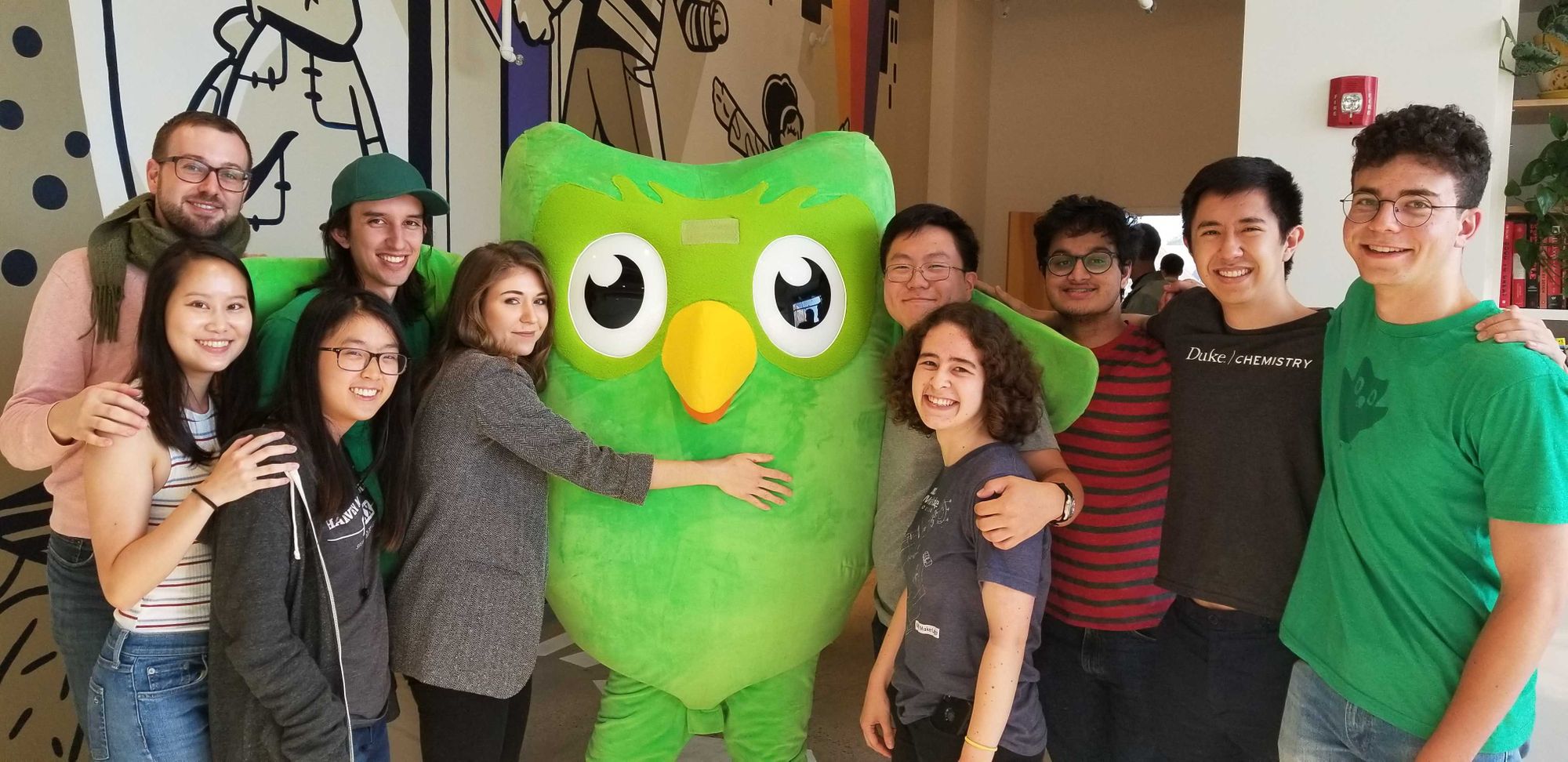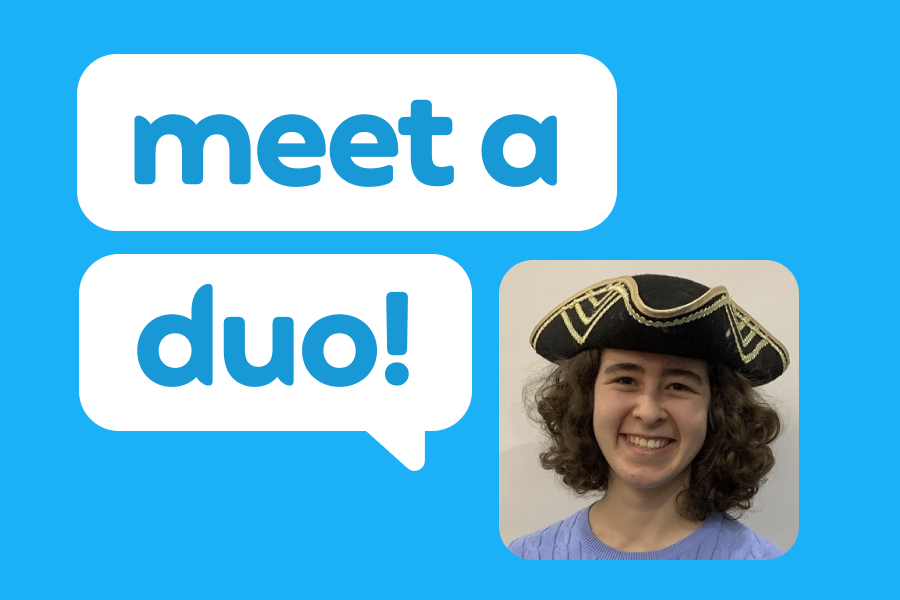My mother first introduced me to Duolingo 8 years ago. When she had five or ten minutes to fill, she would pull out her phone and start a lesson, delighted that she could do something meaningful with time that would otherwise be wasted. Soon, I too was using the app, supplementing the French I was learning in high school and hooked on the triumphant fanfare of a completed lesson. I loved that the app provided more concentrated and directed practice than I was getting in French class, and I loved that it was completely free.
Years later, as a junior at MIT majoring in math with computer science and linguistics, I attended my college’s career fair in search of a summer internship position. I knew the approaching summer would be an important one for me career-wise. I had participated in research opportunities the past two summers, and this would be one of my last chances to try an internship before I’d have to choose between applying to grad schools, finding a full-time industry position, or something else entirely. So, it was important to me to find a company where I could potentially see myself working after graduation.
Amidst the sea of companies at the career fair, the Duolingo booth stood out as an island of familiarity: I knew what Duolingo did, I had enjoyed using the app, and I felt that it was something I would be proud to contribute to. Furthermore, it was one of the few companies at the fair that aligned with my interests in language and linguistics. I applied to the software engineering internship program, hoping to get more experience, explore what it’s like to work in industry, and learn more about the company behind the app I had picked up in high school.
At the end of that application cycle, I was fortunate enough to have a few offers to choose from. Of the companies I could be interning at, Duolingo was the only one with a major focus on language, which put it ahead of the others in my book. After visiting the company’s Pittsburgh headquarters and getting to chat with some people at Duolingo over lunch, I thought, “This seems like a nice place, I can see myself here,” and decided to accept the internship offer.

I’ve always been drawn to communities of kind people who are passionate in both work and play and are serious about what matters, while also valuing a certain playfulness and quirky sense of humor. A desire to seek out such communities has guided my choice of college and living situation. And, as an intern at Duolingo, I was amazed to find a similar kind of community in a workplace.
Some things that stood out for me:
- I could tell that Duos took pride in the work they were doing, that they found it impactful and meaningful. Everyone I talked to seemed excited about what they were working on, and about how it would make Duolingo better.
- At the same time, it wasn’t an “all work and no play” experience. Over the course of my internship, there were team outings, board game nights, and parties. There were also ways to take small breaks and get to know people throughout the work day, from grabbing a snack and chatting in our micro-kitchen to playing a round of ping pong in the game room, or even checking Slack messages. The company Slack not only contained channels for various teams and projects, but also for posting pet pictures, sharing jokes, organizing group events, and more.
- Everyone was incredibly kind and helpful: Duos were happy to meet with me to offer advice on structuring my code, or to talk about the projects they are working on. Not only did I feel like my coworkers had a lot to teach me, but also that they would take the time and effort to do so.
- I saw plenty of opportunities to learn at Duolingo, not just about software engineering, but also about languages and linguistics, through language tables, invited speakers, and conversations with linguists at the company. I also enjoyed attending meetings about the research going on at Duolingo. How fitting that a company committed to providing education is also supportive of learning opportunities for its employees!
- Speaking of commitment, I loved seeing Duolingo’s mission guide the choices the company made, such as refusing to charge for content and aiming for an excellent free experience, even when that makes monetization more difficult. I felt proud to be working for a company where financial gain is treated as a means to the end of reducing educational inequality, rather than the end goal itself.
One of my personal goals for that summer was to decide whether or not an industry software engineering position would be right for me. By the end of the summer, I knew I wanted to work full time for Duolingo. Now, after seven months of work, I am confident that I made the right choice. I’m working with friendly, amazing people on meaningful projects, and after all the insanity of 2020, I feel genuinely lucky to be here.
